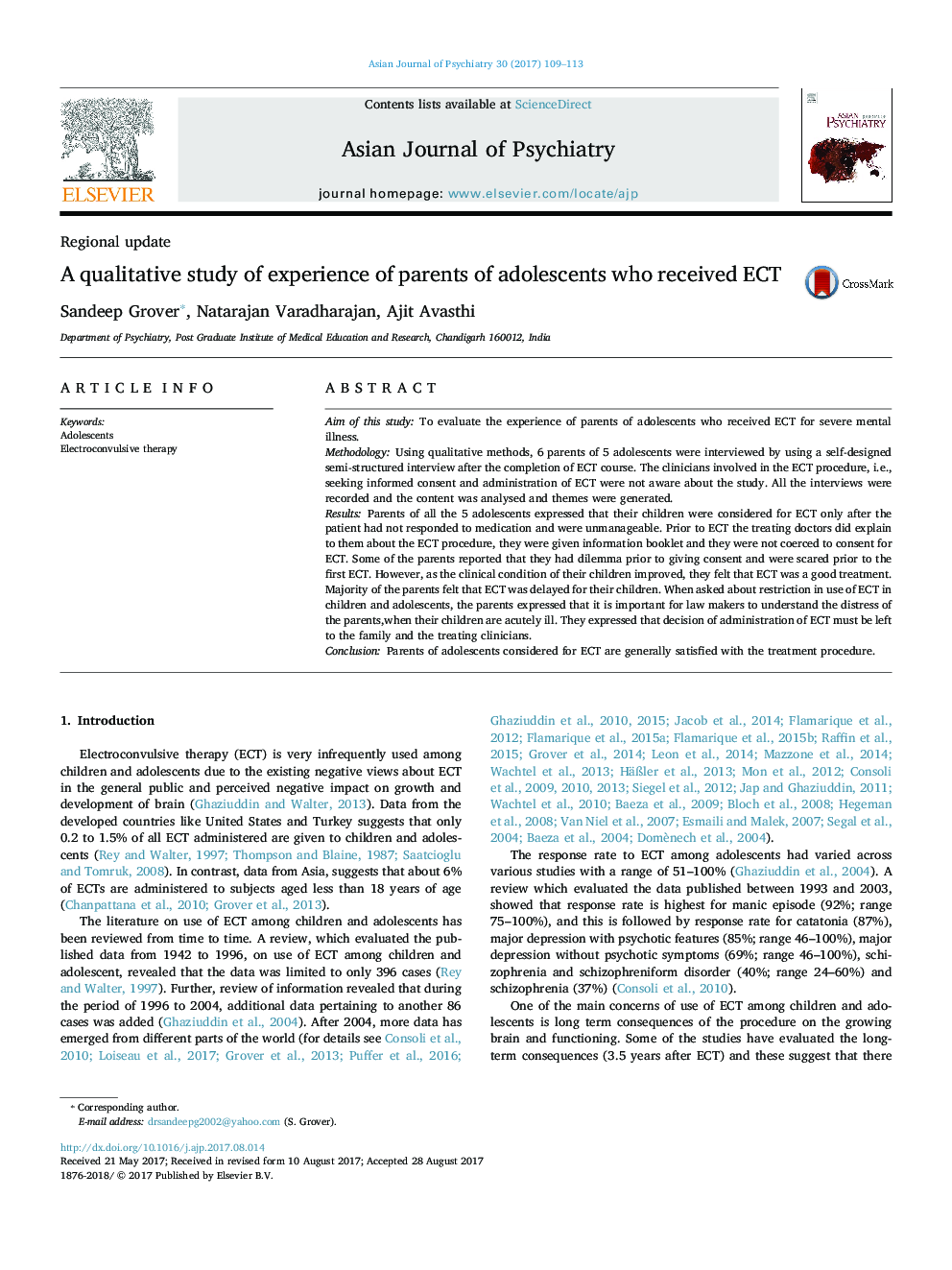| Article ID | Journal | Published Year | Pages | File Type |
|---|---|---|---|---|
| 4929717 | Asian Journal of Psychiatry | 2017 | 5 Pages |
â¢Parents of adolescents reported that they were no coerced for ECT.â¢Parents of adolescents reported ECT benefited their children.â¢Majority of the parents felt that ECT was delayed for their children.â¢When asked about ban on use of ECT, the parents expressed that law makers should understand the distress of the caregivers when their patients are acutely ill.
Aim of this studyTo evaluate the experience of parents of adolescents who received ECT for severe mental illness.MethodologyUsing qualitative methods, 6 parents of 5 adolescents were interviewed by using a self-designed semi-structured interview after the completion of ECT course. The clinicians involved in the ECT procedure, i.e., seeking informed consent and administration of ECT were not aware about the study. All the interviews were recorded and the content was analysed and themes were generated.ResultsParents of all the 5 adolescents expressed that their children were considered for ECT only after the patient had not responded to medication and were unmanageable. Prior to ECT the treating doctors did explain to them about the ECT procedure, they were given information booklet and they were not coerced to consent for ECT. Some of the parents reported that they had dilemma prior to giving consent and were scared prior to the first ECT. However, as the clinical condition of their children improved, they felt that ECT was a good treatment. Majority of the parents felt that ECT was delayed for their children. When asked about restriction in use of ECT in children and adolescents, the parents expressed that it is important for law makers to understand the distress of the parents,when their children are acutely ill. They expressed that decision of administration of ECT must be left to the family and the treating clinicians.ConclusionParents of adolescents considered for ECT are generally satisfied with the treatment procedure.
